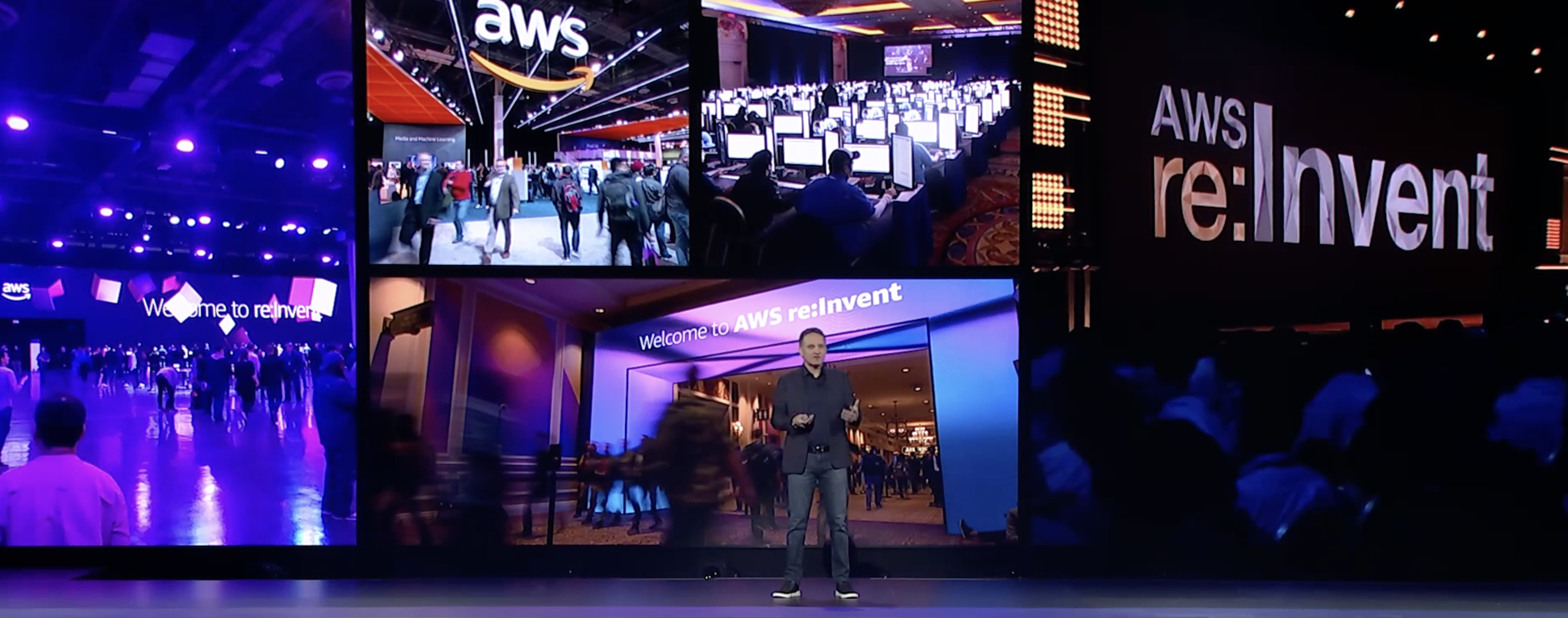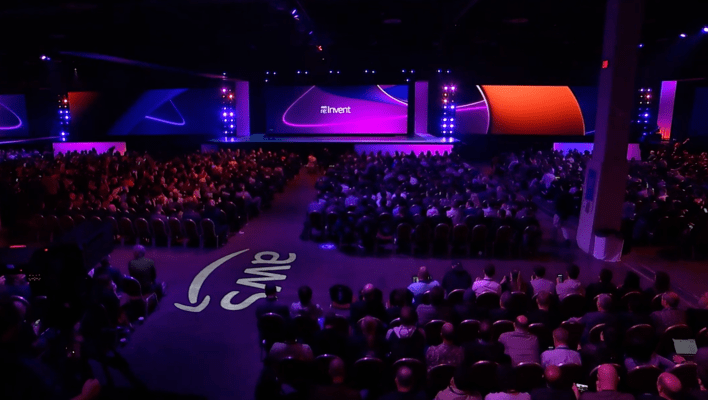There was a time when AWS re:Invent, the yearly customer extravaganza put on by Amazon’s cloud arm, was chock full of announcements. The innovation coming out of the company was so mind-boggling that it was hard to keep up with the onslaught of news.
But this year felt different. If last year was incremental, this year was downright slow when it came to meaningful news.
To give you a sense of our coverage here at TechCrunch, last year, we wrote 28 stories about the event. This year, it’s down to 18, including this one. It’s not that we wanted to write less — we just simply found there was less relevant news to write about.
The day two AI and machine learning keynote was all incremental improvements to existing products. There were so few meaningful announcements that my colleague Frederic Lardinois wrote a post in pictures mocking the lack of news.
It’s gotten to the point, it seems, where the ecosystem has grown so enormous, and there are so many products, that the company has decided to focus on making it easier to work with and between those products (or with external partner products) than creating stuff from scratch.
From a news perspective, that means that there’s really less to write about. Eight new SageMaker capabilities or five new database and analytics capabilities, which I’m sure are important to the folks who needed those features, feel like piling on to an already feature-rich set of products.
It’s not unlike Microsoft Word over the years: It’s a perfectly fine word processor, so the only way to really improve it was to lob on new feature after new feature to make it relevant to an ever wider or more granular audience.
To be clear, making the products work together or work better with other products is not a bad thing. In fact, it’s necessary. Folks who work within the system every day probably welcomed the ability to move between services in an easier way, but it’s not like announcing SageMaker or the Aurora database for the first time. Those were huge. This was OK.
To be fair, that’s not to say that the conference was completely lacking in new product announcements. In fact, the company introduced several new tools, including Amazon Supply Chain, a move into managing supply chain data, and Amazon Clean Room (which is one of the stranger product names in a while), a way to manage customer data from across multiple disparate data sources. The latter sounds a lot like Salesforce Genie, introduced at Dreamforce in September.
The company also introduced a couple of Zero ETL products. ETL stands for extract, transform and load, and it’s a time-consuming process that every data scientist needs to go through to get their data into a format that they can use in their model. Amazon came up with a way to bypass ETL, and it could be huge as it incorporates this concept into its various products.

AWS CEO Adam Selipsky. Image Credits: AWS
While these were certainly interesting, they didn’t make you stand up and marvel at AWS’ ability to keep producing amazing products year after year.
Constellation analyst Holger Mueller said the company is reaching a period of maturity, but from a customer point of view, this is probably a good thing. “AWS is entering a period of consolidation, where the integration of their products is more important than adding new products and services,” he told TechCrunch.
“For customers, this is good news, as the value of their AWS services increases, enabling them to move faster and become more agile, in short, increasing enterprise acceleration,” he said.
But even Mueller wonders if incremental change is enough. “On the flip side, if the trend continues, the question is: Has AWS run out of innovative ideas?”
Anshu Sharma, the CEO at startup Skyflow, thinks it’s possible that the age of innovation in the cloud could be over for every cloud vendor, not just AWS, because the basic building blocks have been constructed.
“I think it’s mostly over — all the core primitives [like database, storage, compute] have been built. Now, these companies are trying to compete in a couple of remaining areas — market power, partnerships, etc. So it’s gone from product wars to distribution wars,” he said.
If he’s right, the kinds of announcements we’ve been seeing from AWS (and other cloud vendors) just won’t wow us anymore. It’s a similar dynamic to what we saw with smartphones a decade ago when the product launches stopped being must-see TV. Distribution simply isn’t as sexy as new product announcements, and if that’s the case, two-hour keynotes full of filler and incremental feature enhancements will become ever harder to sit through.

